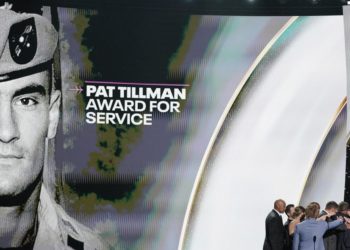When Nayib Bukele, the president of El Salvador, agreed earlier this year to imprison deportees from the United States, he had a specific request of the Trump administration: the return of top MS-13 leaders in American custody.
For the past several months, a team of New York Times reporters has been investigating how their return is affecting President Trump’s pledge to dismantle the transnational gang and why Mr. Bukele would want top gang leaders back in his country.
Bukele could benefit from MS-13 leaders being let out of U.S. custody.
U.S. and Salvadoran officials have said MS-13 leaders are being returned to face justice in El Salvador. But The Times found that American prosecutors have amassed substantial evidence of a corrupt pact between the Salvadoran government and some high-ranking MS-13 leaders, who agreed to drive down violence and bolster Mr. Bukele politically in exchange for cash and perks in jail. Investigators had even begun scrutinizing Mr. Bukele himself.
Some who were part of the federal investigation worry that Mr. Bukele wants the gang leaders back to prevent them from revealing damaging information about his government.
The return of top MS-13 leaders could hamper the U.S. investigation.
The investigation began in the first Trump administration, spearheaded by a cross-agency group called Joint Task Force Vulcan. But now two major cases against some of the gang’s highest-ranking leaders that emerged from that effort could be badly damaged, and other defendants could be less likely to cooperate or testify in court, according to multiple people with knowledge of the initiative.
Prosecutors are quietly seeking to drop charges against top leaders.
After working for years to get senior MS-13 leaders into custody, federal prosecutors are now quietly dropping charges against them. One top leader, César López Larios, was put on a plane to El Salvador in March with other migrants sent to a maximum-security prison. Mr. López had been in U.S. custody for less than a year and was awaiting trial on narco-terrorism conspiracy charges.
Prosecutors in Long Island are now seeking to drop charges against Vladimir Arévalo Chávez, who was accused along with 12 other gang leaders in February 2023 of narco-terrorism, murder and corruption.
The U.S. has had indications for years of a pact between Bukele and the gang.
The first Trump administration received a warning about a secret pact between Mr. Bukele’s government and MS-13 as early as August 2020, when a top Salvadoran official showed up at the U.S. Embassy in San Salvador to share information, The Times found.
The following year, the Treasury Department imposed sanctions on that same official and another top Bukele aide after determining they had offered MS-13 leaders money, cellphones and prostitutes in jail in exchange for their help bringing down the homicide rate and securing votes.
Trump’s deal with Bukele cuts against his pledge to ‘eradicate’ MS-13.
Mr. Trump has long vowed to take down the gang, pledging in a speech early in his first term “to dismantle, decimate and eradicate” MS-13. When he returned to the White House this year, he renewed that promise. Earlier this year, Attorney General Pam Bondi issued an internal memo calling for the “total elimination” of the gang. But the deal with Mr. Bukele is now undermining one of Mr. Trump’s most significant initiatives to go after MS-13.
The post Why Is Trump Returning MS-13 Leaders to El Salvador? 5 Takeaways From the Times Investigation. appeared first on New York Times.




